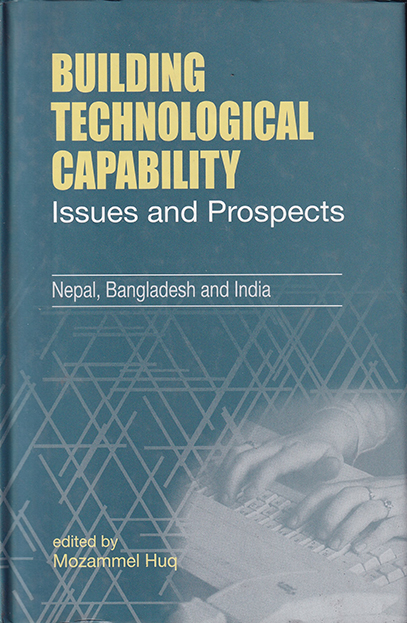- Shop
- International
- Building Technological Capability: Issues and Prospects - Nepal, Bangladesh and India
Building Technological Capability: Issues and Prospects - Nepal, Bangladesh and India
https://uplbooks.com/shop/9789840516339-building-technological-capability-issues-and-prospects-nepal-bangladesh-and-india-6584 https://uplbooks.com/web/image/product.template/6584/image_1920?unique=3d813f3
| Language: English |
Tags :
Book Info
This volume contains a number of studies considered essential for a course on technological capability building in developing countries. It is an outcome of a Technology Link Programme between the University of Strathclyde and the Royal Nepal Academy of Science and Technology. The book aims to help the reader gain a good understanding of the relevant historical developments and also the various static and dynamic issues involved. The focus of the volume is on analysing the process of helping effective transfer of technology to developing countries. The dime areas emphasised are: first, exploration of the origin and the development of the concept, examining the relevant evaluation criteria and the problems of transferring advanced technologies; second, case studies from Bangladesh, India and Nepal are incorporated to help to analyse the state of technology policy in some of the low-income developing countries; finally, it examines industry case studies in particular the transfer of technology to Nepal in turbine manufacturing (for micro-hydro plants) and to Bangladesh in fertiliser manufacturing (using natural gas). The book should be very helpful for graduate students undertaking courses on Technology Transfer to developing countries. The contributors include academics and policy makers from a multi-disciplinary background, who have remained active researchers.

Mozammel Haq
Mozammel Haq Mozammel Huq teaches in the Department of Economics and is also the Associate Director of Developing Countries Research Unit at the University of Strathclyde. He has also worked extensively conducting research and teaching undergraduate/postgraduate students in a number of developing countries including Bangladesh, Ghana and Nepal. He has published in various international journals including World Development, Bangladesh Development Studies, Pakistan Development Review, and Science, Technology and Development and is the author of a number of books including Choice of Technique in Leather Manufacture (Scottish Academic Press, Edinburgh 1981), The Economy of Ghana (Macmillan, London 1989), Fertilizer Manufacture in Bangladesh (UPL, 1992) and Machinery Manufacturing in Bangladesh (UPL, Dhaka 1993). He has also edited a number of volumes on



